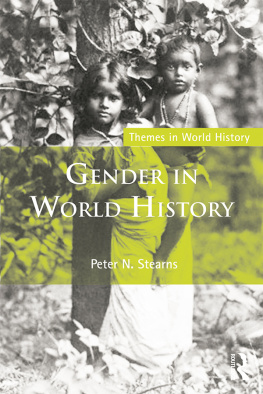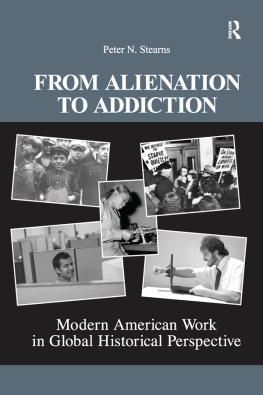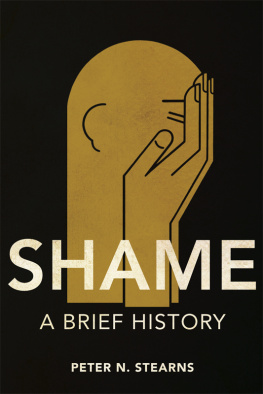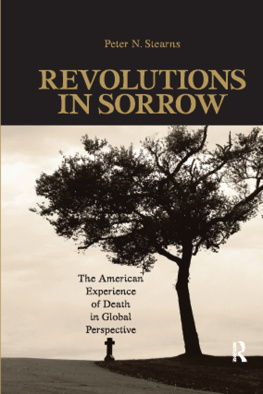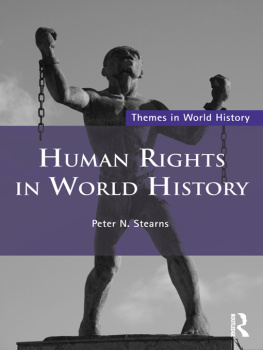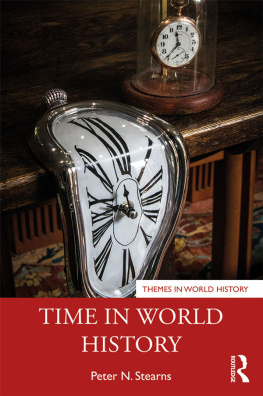MILLENNIUM III, CENTURY XXI
First published 1998 by Westview Press
First published in hardcover by Westview Press in 1996
Published 2018 by Routledge
711 Third Avenue, New York, NY 10017, USA
2 Park Square, Milton Park, Abingdon, Oxon OX14 4RN
Routledge is an imprint of the Taylor & Francis Group, an informa business
Copyright 1998 Taylor & Francis
All rights reserved. No part of this book may be reprinted or reproduced or utilised in any form or by any electronic, mechanical, or other means, now known or hereafter invented, including photocopying and recording, or in any information storage or retrieval system, without permission in writing from the publishers.
Notice:
Product or corporate names may be trademarks or registered trademarks, and are used only for identification and explanation without intent to infringe.
Library of Congress Cataloging-in-Publication Data
Stearns, Peter N.
Millennium III, century XXI : a retrospective on the future / Peter N. Stearns.
p. cm.
Includes bibliographical references and index.
ISBN 0-8133-2870-5 (hardcover) ISBN 0-8133-3457-8 (pbk.)
1. Twenty-first centuryForecasts. 2. Millennium. I. Title.
CB161.S725 1996
303.49'09'05dc20
96-12807
CIP
ISBN 13: 978-0-8133-3457-8 (pbk)
This book is introduced in the Preface to the First Edition, which follows these few remarks. I indicate there that I wrote the book (a few years ago now) out of a real interest in anticipating the kinds of information people would find useful as discussions and invocations of the millennium and turn of the century accelerated during the last years of the 1990s. Ive been gratified by response to the original editionincluding its use without credit in a number of television discussions. Clearly, the coming calendar changes encourage us to think about various aspects of history and their uses, and thats what this book highlights.
In revising the book for the paperback edition, Ive made modest alterations in various sections, eliminating a couple of errors and expanding on a few developments that are clearer now than they were three years ago. Ive also added a final section on whats been happening very recently, by way of relating the books contentwhich mostly, in my judgment, remains valid and usefulto recent millennial news. I use this new section also to admit that I made a few wrong guesses when I wrote the original version, not in content, but in what I anticipated in terms of popular emphases. But since part of my argument involves some cautionary notes about predicting, I dont feel abashed by the result, though I do think the adjustments are interesting. Its also obvious that various questionable uses of the millennium are proceeding despite the fact that the book clearly warns against thembut that I did predict. This is a work designed to encourage those who like a slight remove from media frenzies. Responses to date have more than convinced me that this goal is served.
When I was in grade school in the 1940s, I became aware that it was quite possible that I would live into the 21st century. The idea was oddly exciting. Somehow (perhaps because I had a historian for a father) this kind of marker seemed personally meaningful. I remember spending some of the downtime in class calculating life expectancy and realizing that, statistically, I was likely to make it past the year 2000. I did not know at the time about the issue of whether 2000 or 2001 would really constitute the beginning of the new centurywell touch on this matter again later, but for the moment I should posit that 2001 makes much more sense, since there never was a year zero. On the other hand, my estimate of average male longevity erred on the conservative side.
I havent made it to the 21st century yet, but at the risk of tempting fate I can mention that statistics are even more on my side now. I begin on this personal note only to confess my own complicity in the kind of thinking that makes turns-of-the-century meaningful. This book focuses on exploring what kinds of meaning are involved.
I dont know when I realized that the year 2001 would also mark the start of a new millennium. Certainly by the time I was in college, I had begun to absorb information about the significance of millennial thinking in the Western tradition (although I did not learn until much later how erroneous much of this information was). Over the past decade, as the new millennium draws closer and a few books and articles have begun to take advantage of that fact, often very misleadingly, I have been thinking about trying to provide some of the data and perspectives that can help us approach this quite artificial and quite exciting marker with understanding.
We live in a confusing age (most ages are confusing) in which sorting out the significance of a new century and a new millennium would be challenging in the best of circumstances. We inherit a culture that has surprisingly recently established centuries and probably millennia as significant measurements of time, which ensures that we cant avoid the challenge of figuring out some semblance of meaning. We also live in a media-drenched age in which any event or nonevent can be the occasion for massive outpourings of hyperbole and half-truths that can stimulate, mislead, and distract. We live, furthermore, in a highly commercial time, when hosts of people selling products and services seek to take advantage of any attention-getter to push their own wares. We already have a car model called Millennium (Mazda), and there is a growing crescendo of references to this or that being exactly what we need for the 21st century. The first barrage of millennium books appeared almost a decade ago, between 1986 and 1990, attempting to set an anticipatory mood. A New Republic article wonders, tongue in cheek, if the noticeable American weight gain since 1980 is due to jubilant appetites anticipating the celebration and fear of a new eraand how many behaviors will be explained by the imminent millennium over the next few years? This is surely just the tip of a coming iceberg. We live, finally, in a culture addicted to predictions, without much concern for their basis in truth (more on this later).
Party planning is well advanced, so that we know we can anticipate a celebratory climate. Some groups organized to begin reserving festive sites in the mid-1980s. The Millennium Society of Washington, D.C., plans standing-room-only vigils, with suitable feast fare, at places like the Acropolis, the Eiffel Tower, and the Taj Mahal. Top dining spots in the United States and Western Europe have long since been sold out for December 31, 1999; such is the foresight of committed hedonists. Apparently, the preference is to see in the new numbers rather than the real first year of the new century and millennium.
These points add up to the following: We can expect more and more attention over the next few years to the advent of the 21st century and of the third millennium a.d. or c.e. (a.d., of course, is the abbreviation for the Christian calendar term Anno Domini, in the year of the Lord. History writers are increasingly turning to the more neutral, politically correct designation Common Era, abbreviated c.e., but the dates are the same.) We can expect much of this attention to be self-serving (to promote newspaper sales or commercial goods) and wildly excited, given our addiction to hyperbole (how many crimes of the century do we have every twenty years?), our uncertainty about our own age, and our penchant for sweeping predictions of future change. We can also expect a good bit of millennial coverage to be inaccurate, because drama is best served by false renditions of millennia past. This, by the way, is no idle forecast; most of the anticipatory books of the late 1980s used a distorted view of the last millenniums advent to sensationalize a historical account and to give it a veneer of present relevance. Millennial calendars and prophecies are already on sale for those in the know.




